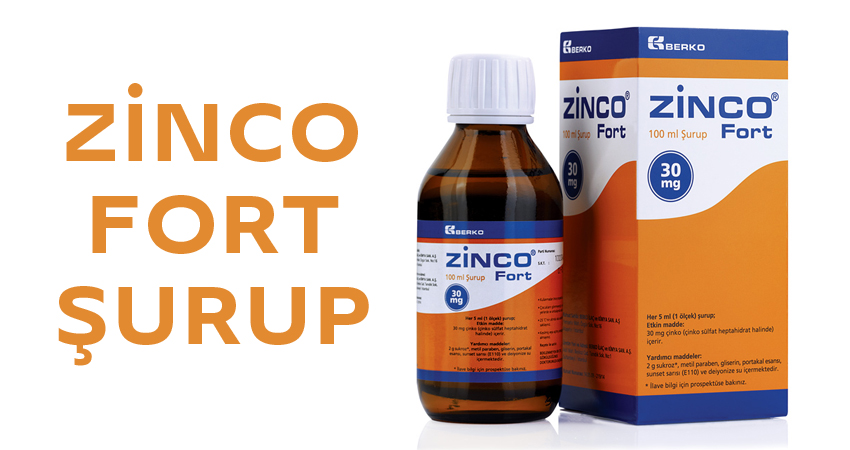Kuru Şampuan Ne İşe Yarar? En İyi Kuru Şampuan Önerileri 2025
Kuru Şampuan Ne İşe Yarar? En İyi Kuru Şampuan Önerileri 2025. Yağlı saçlar için en ideal seçim olarak düşünülen Kuru Şampuan Saçı Temizler mi? Kuru Şampuan saça zararlı mı? Gelin birlikte En İyi Kuru Şampuanları öğrenelim.

Kuru Şampuan Ne İşe Yarar? En İyi Kuru Şampuan Önerileri 2025.. Sıklıkla kadınların kullandığı Kuru Şampuan Nasıl Kullanılır? Saçını yıkamaya vakit bulamayanlar için kolaylık haline gelen Kuru Şampuan kullananlar oldukça memnun. Yağlı saçlar için en ideal seçim olarak düşünülen Kuru Şampuan Saçı Temizler mi? Kuru Şampuan saça zararlı mı? Gelin birlikte En İyi Kuru Şampuanları öğrenelim…
Kuru Şampuan Ne İşe Yarar?

Saçları sık sık yağlanan kadınlar ve saçlarını yıkamaya vakti olmayanlar tarafından çok fazla tercih edilen Kuru Şampuan yağlanan saç diplerini pudramsı yapısıyla emerek sizlere yenilenmiş bir görünüm ve güzel koku sağlar.
Genellikle bayanlar kuru şampuanı, saçlarını yıkamaya vakit bulamadıklarında kullanıyor. Kuru şampuan Lakin hanımlar bunu alışkanlık haline getirip her zaman kullanmanızı tavsiye etmiyoruz. Kuru şampuan günü kurtarır yani saçı yıkamaya alternatif değildir. Hiç bir şey saçınızı, suyla temizlemenin yerini tutamaz bunu unutmayın.
Bir de saç stilistleri, saçlara şekil vermek ve hacim kazandırmak için bu ürünlerden yararlanır. Siz de saçlarınıza volüm kazandırmak için kullanabilirsiniz.
Ağırlaşmış ve hacimsiz görünen saçlarda yapılan saç modelleri güzel görünmez. Aynı zamanda kişi kendisini ferah da hissedemez. Kuru şampuan kullanımıyla hem saç hacimlenir hem de ferah bir his oluşur. Gün içerisinde dışarıdan pek çok koku saçlara siner. Kuru şampuan, saçın yağlı görüntüsünü alırken mis gibi kokmasına da yol açar. Bu şekilde tertemiz kokan saçlar ile canlı bir şekilde güne devam edebilirsiniz.
Genellikle spordan sonra duş alınır. Duş almaya zamanınızın olmadığı günler olduğunda üzülmeyin! Kuru şampuan ile çok kısa bir sürede havalı görünüme sahip olabilirsiniz. Son dakika çıkan davetlerde, özel biriyle acele buluşmanız gerektiğinde, iş yerinde çok önemli bir toplandı olduğunda, okula ya da işe geç kaldığınızda hızlı bir şekilde saçlarınızı yağlardan arındırmak ve canlandırmak için kuru şampuan tercih edebilirsiniz.
👉 En İyi Tuzsuz Şampuan Markası Önerileri
Kuru Şampuan Nasıl Kullanılır?

İlk olarak çok iyi bir şekilde kuru şampuan şişesini çalkalayın. Ardından saç diplerinize doğru, çok yakından olmayacak şekilde yaklaşık 30 cm uzaktan uygulamaya başlayın. Bu aşamada ürünü saç diplerine uygulamak oldukça önemlidir. Bu yüzden saçlarınızı tutamlar halinde kaldırarak ürünü uyguladığınız zaman saç diplerine kuru şampuan çok daha iyi ulaşır ve etkinliği artar. Buna dikkat etmenizi öneririz.
Saç diplerine uygulama işlemi bittikten sonra şampuan olan bölgelere parmak uçlarınızla hafif şekilde masaj yapın. Bu masaj sayesinde kuru şampuanı tüm saçınıza yayılmasını sağlamış olursunuz. Akıllara takılan bir başka nokta da kuru şampuan kullanım sıklığıdır. İstediğiniz sıklıkta kuru şampuan kullanabilirsiniz. Dikkat edilmesi gereken nokta ise, hassas saç derisine sahip olanlar ve saçları kolay kırılan kişilerin her gün kullanmaları halinde yıpranmaya neden olmasıdır.
Son olarak da hatırlanması gereken en önemli şey de kuru şampuan kullanımından sonra işiniz bittiği gibi saçınızı yıkamalısınız. Aksi takdirde saçınızda uzun süre kuru şampuan bulunursa yine yıpranma ile sonuçlanacaktır. Yıkama esnasında ürünü saçınızdan iyi arındıramadığınız takdirde birkaç kullanım sonunda şampuan saç diplerinizde birikir. Bu da saç foliküllerini tıkar.

Adım adım anlatacak olursak;
- Kuru şampuan kullanmadan önce saçlarınızı tarayın. Böylece saçlarınızın dolaşmasını önlersiniz.
- Şişeyi iyice çalkalayın.
- Saçlarınızı tutamlara ayırın.
- Kuru şampuanı 15 cm uzaklıktan sıkın.
- Ürünü saç diplerine yedirmek önemli, o nedenle parmak uçlarınızla saç derinize bir güzel masaj yapın.
- Ürünü saçlarınızda 4-5 dakika beklettikten sonra parmaklarınızla karıştırıp yedirin.
👉 Sülfatsız Şampuan Ne İşe Yarar?
Kuru Şampuan Çeşitleri ve Önerisi

2 çeşit kuru şampuan vardır:
- Sprey formda kuru şampuan
- Pudra formda kuru şampuan
Genellikle sprey formlu çeşitlerinin kullanımı daha yaygındır. Çünkü en pratik ve en etkili olan çeşit sprey formdur.
Sizler için farklı kriterlere göre kuru şampuan önerileri derledik. Hangi saç tipine sahip olduğunuz, kuru şampuandan istediğiniz etkiye, tercih ettiğiniz kokuya göre farklı çeşitlerde kuru şampuanlar da mevcuttur. Daha ince telli saçlarınız varsa hacim verici etkili olanları tercih ediniz. Koyu renk saçlarınız var ise ya da kuru şampuanın renk bırakacağından korkuyorsanız görünmez olanları tercih edebilirsiniz.
Ev Yapımı Kuru Şampuan
Marketlerde satılan kuru şampuanların içerisindeki bir maddeye alerjiniz var ise, kimyasal herhangi bir ürünü cildinize ya da saçınıza uygulamak istemediğiniz durumlarda ya da dışarı çıkıp alacak vaktiniz yoksa üzülmeyin! Sizler için hazırlaması ve uygulaması son derece basit olan evde bulunan malzemeler ile rahatlıkla hazırlayabileceğiniz bir ev yapımı şampuan tarifimiz var.
Malzemeler:
- Yarım çay bardağı ararot tozu ya da tarçın
- Yarım çay bardağı mısır nişastası
- İsteğe bağlı olarak yarım çay bardağı mısır nişastası
- Uygulamak için makyaj fırçası
Hazırlanışı oldukça pratik olan kuru şampuan için önce tüm malzemeleri cam bir kavanoz veya kasede fondöten veya allık fırçası ile karıştırın. Hazırladığınız karışımı saç diplerindeki yağlı bölgelere uygulayın. 10 dakika boyunca saçınızda bekletin. 10 dakika dolduktan sonra saçlarınızı tarayarak tozu saçınızdan uzaklaştırabilirsiniz.
👉 Öğrenci Gündemi’ ni İnstagram’dan Takip Etmek İçin Tıklayınız




